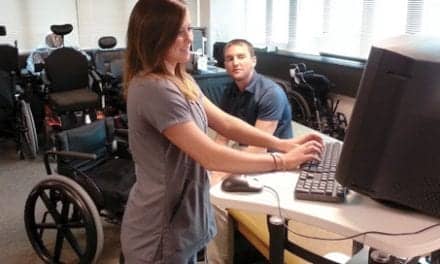Troops fighting the wars in Iraq and Afghanistan return home with medical challenges often unique to members of the military. Research to address these needs is under way, and the work of hundreds of investigators engaged in the effort is being showcased through September 3 at the Military Health Research Forum 2009 (MHRF) in Kansas City, Mo.
Areas of research include neuroprotection, rehabilitation, and many more, says a statement released by MHRF.
The conference aims to bring together investigators funded by the Department of Defense Congressionally Directed Medical Research Programs and invited speakers, consumers, members of the military health care system and DOD policy makers to spur the exchange of information, the development of new collaborations, and for participants to learn about research advancements funded through the host programs.
Plenary Session: Tomorrow’s Medicine
On September 2, the plenary session "Tomorrow’s Medicine," moderated by Dr George Weightman (MG, US Army Ret), will herald recent advances in trauma care and rehabilitation, personalized medicine, neurology, and behavioral science, and highlight the speakers’ visions of future prospects for medical advances. Session speakers and their topics include:
– Dr Amishi Jha (University of Pennsylvania), who will introduce mindfulness techniques and illustrate how they are used to improve attention and memory for specific tasks.
– Dr Greg Downing (Department of Health and Human Services) will identify initiatives under way that are bringing science, medicine, and health care practices together to develop personalized health care.
– BG Michael Yaszemski, MD (Office of the Assistant Surgeon General for Health Care Operations and the Mayo Foundation and Clinic, Rochester), will characterize the future of bone and nerve engineering for use in regenerative medicine.
– Dr Robert Dennis (University of North Carolina, Chapel Hill) will address the core questions of tissue engineering, and explain how our answers to these questions will shape its future.
Dr Stephen Johnston (The University of Arizona) will describe opportunities for pre-symptomatic diagnosis of diseases.
Prosthetic Development Session
A roundtable discussion of prosthetics, their current engineering, and future research directions in their development is scheduled for September 3, during the 7 am morning concurrent sessions. Dr Glenn Klute (University of Washington), Dr Michael Goldfarb (Vanderbilt University), and Jonathan Kuniholm (Duke University) will discuss advances in lower and upper limb prostheses, their efficacy, the frustrations of amputees considering currently available prostheses, and an amputee’s view of current research in the field of prosthetics development.
Among the highlighted abstracts:
— General military health, including potential treatments for spinal cord injury, nutrition’s impact on cognitive performance in pilots, and
the effectiveness of a family-based reintegration program.
[Source: Congressionally Directed Medical Research Programs (CDMRP)]




